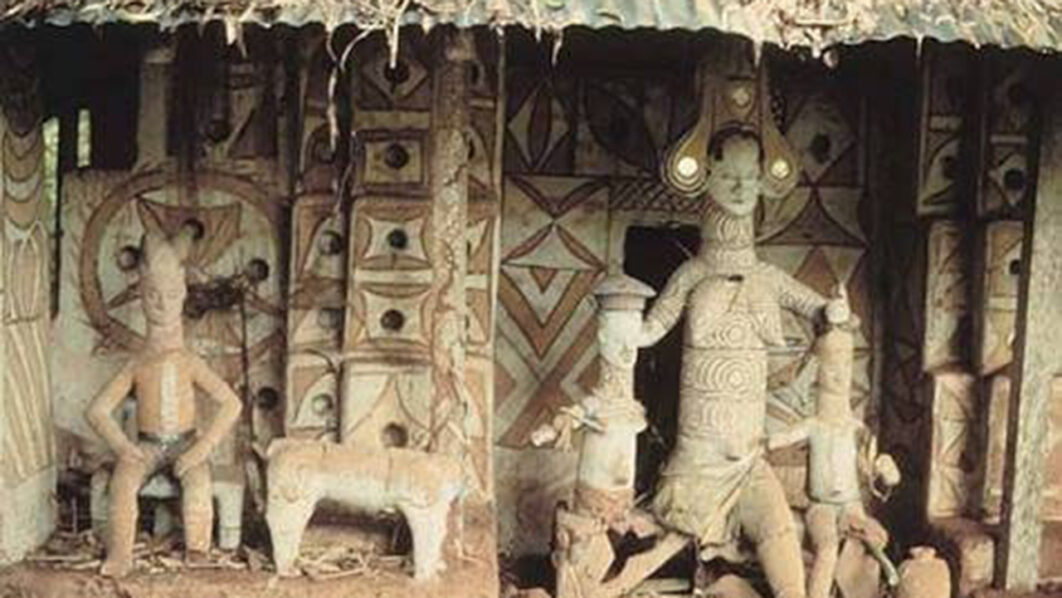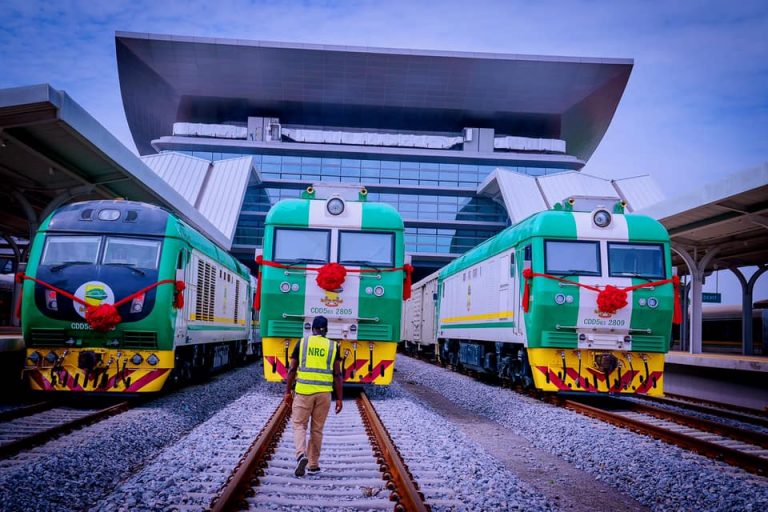
As new urban development projects gain traction to meet emerging needs in cities, steadily at risk are historic structures and tourist attractions that count for a fortune in other parts of the world, FELICITAS OFFORJAMAH reports.
A wrestling match between preserving heritage and economic development – the latter seems to have the upper hand, while tourist sites across the country have suffered blows, fading into extinction.
Government-commissioned bulldozers raze to pieces historic buildings and tourist sites intended to give way to development projects, including roads, flyovers, railways, real estate, or for individual use, and layers of Nigeria’s past are being destroyed.
Sand Filled to Obscurity
Bar Beach was where every Lagos visitor wanted to see. The tales, waves, atmosphere, and shores erstwhile fascinated visitors from home and abroad, to come to its banks again, breathe its air, step on its sand, and days after, still find its fine grains at home.
A beach holding almost forgotten memories of pain, happiness, and achievements for Nigerians, it was a significant watermark for Lagos State. Possessing shores where dead bodies rested, not just for curious boundary oversteppers but for criminals, particularly armed robbers who terrorised the green and white nation early years after independence. It includes the notorious Ishola Oyenusi and Babatunde Folorunsho, a.k.a ‘Baba oni lace’, whose execution stained the white sands of Bar Beach with brutal blood.
A relaxation and entertainment spot for every visitor, business thrived at the site. To shoe menders, food sellers, and service providers, it was a financial hotspot that provided food for individuals and families.
Today, in the stead of the Bar Beach, the state government has built a satellite city, known as Eko Atlantic. The reason given for the redevelopment is the continual overflooding of its banks, the Federal Government claimed to have spent over N30 billion on several projects aimed at improving the environment in the last 40 years. However, some critics felt that officeholders used the situation to siphon money instead of doing something substantial. However, it has been criticised for having a design defect that still leads to ongoing flooding in Lagos.
Demolition of Ilojo Bar
Declared a national monument by the National Commission for Museums and Monuments (NCMM), Ilojo Bar, popularly called “Olaiya House” or “Casa do Fernandez,” was the last remaining example of Brazilian architecture in Lagos, until it was demolished.
Historians claim that talented African slaves, who were making their way back home from South America in 1855, constructed the building. The structure was a masterpiece at the time and was originally built by the Fernandez family specifically in the form of a bar and restaurant as a platform for entertainment and relaxation. It was later sold to the Olaiya family in the 1930s.
However, a real estate developer slipped in with his tool of destruction on the eve of Eid-el Kabir (September 11, 2016) and destroyed the Ilojo Bar. This tragic incident tore significant clothing in Nigeria’s heritage history as the demolition had removed concrete proof of the transatlantic slave trade and its abolition’s effects on society and culture.
Regarding the demolition of Ilojo Bar, Nigerians had differing opinions. While some people think the move was driven by commercial concerns, others attribute the building’s final collapse to NCMM’s carelessness and neglect.
Mbari Culture Centre, Imo
A museum of Igbo culture and a multipurpose art and cultural centre in Mbari Street, Ikenegbu Layout, and the Mbari Cultural Centre were demolished by Governor Rochas Okorocha. It was a centre that preserved the voices of the Igbo ancestors and houses the visual etymological anthology of Igbo culture.
An ongoing series of demolition exercises has raged throughout Imo State since 2012. The Imo State Government has said in several press releases that the demolition operations are a component of their urban redevelopment initiatives aimed at transforming Owerri into a contemporary metropolis worthy of its position as the state capital. Road construction and dualisation, flyovers, roundabouts, and tunnel projects are the principal components of the state’s urban regeneration initiatives.
Nearly all of Owerri’s historical landmarks and monuments have been demolished as part of Imo State’s urban regeneration programme, uprooting thousands of residents and businesses in the process.
Other tourist attractions affected by the quest for urban development across the country are the landmark beach, which was demolished to give way to the Lagos-Calabar highway route; the Ojukwu Memorial Library; the Kano Walls; and Eke-Ukwu Market.
According to Article 4 of the UNESCO Convention concerning the protection of the World Cultural and Natural Heritage Sites (1972), the state in which a cultural or natural heritage site is located bears the primary responsibility for assuring its identification, protection, conservation, presentation, and transmission to future generations, but the continuous denunciation of heritage sites that do not follow the regulations has stifled tourists both home and abroad.
Tourism industry participants feel that the country stands to gain more from harnessing tourist sites than renovating them into other structures for urban use.
These experts also see these renovations and demolitions as destroying everything aesthetically pleasing, historically significant, and an attraction for tourists from around the globe. For them, it damages priceless portions of the country’s collective memory and history and eliminates the long-term economic benefits of the tourism destinations.
Business consultant and former Miss Tourism Nigeria, Joy Ebere, described it as irrational to demolish tourist sites for any sort of ‘development’ and that the manpower, finance, and other resources used to destroy them can build and restructure tourist sites.
“Smart countries around the world embrace these tourist sites and magnificently use them. When it comes to beaches, other countries build their bridges on top of the water and even build houses. People pay money to go to other countries to sleep on the water. Why can’t our government do the same thing?
“They are not just visionary people, but they are stuck on the old way of doing things. When they see the newer ways, they just want to go back to what they are used to. It just doesn’t make sense to me that you are trying to bring investors into the country, and where some have invested, you are demolishing them and most times not being compensated. It’s very disheartening.”
Ebere said that she was disheartened when she visited the demolished Landmark Beach. “The beaches, beautiful places that employed a lot of people and were always crowded, had been demolished because the country wanted to build a road that could have been built on top of the water.
“It doesn’t make sense to me, and it is until we start harnessing the right people that know the technical know-how that Nigeria will continue to backslide, and we will be making complaints that are irrelevant while the relevant people would go to waste.”
Development expert and co-founder of Rethinking Cities, Deji Akinpelu, said that our disregard for preserving heritage and tourist sites for real estate development reflects a lack of understanding of their purpose and potential benefits.
“Even when entertainment businesses are established along beaches, particularly Lagos, the commercialisation of these areas is troubling as it restricts public access. Growing up, we had access to beaches, making leisure life possible for everyone. Now, commercialisation has created a class divide, making many feel disconnected from the city. In our quest to meet housing needs (benefiting only a few), we are building a city without considering sustainability, inclusion, or heritage.”
Akinpelu added that green spaces and wetlands are vanishing and that our built environment neglects low-income needs and the destruction of heritage sites like Ilojo Bar on Lagos Island exemplifies poor government decisions.
The development expert added that it’s important to recognise that tourism is a form of real estate development. However, comparing the profitability of residential and commercial structures to that of tourist sites is unnecessary.
“A city cannot solely consist of structures for living and work; fun and recreational activities are essential for quality of life. Tourist and heritage sites are crucial for human well-being, offering balance in a world where many face medical challenges due to poor work-life balance. These sites support healthier lifestyles by providing leisure opportunities,” he said.
In terms of profitability, tourism and heritage sites can be as lucrative, if not more so, than housing developments. Cities like Dubai exemplify this. However, a city should ensure access for all to live quality and sustainable lives. Even God didn’t build a house for man but created a garden, knowing that humans can build their own shelters,” he said.
Former Miss Eco Tourism Nigeria, Ifunanya Basilia, stated that the country lacks the legal structure to protect heritage sites.
“The fact that Nigeria regards tourism as important enough to have offices for it, I think the country knows its significance, but what they lack is the knowledge on how they can harness the potentials, and the effect of the lack of knowledge is not having structures in place to protect and preserve tourism in Nigeria or to even promote it.”
The ecotourism expert added that the impact of the offices is not seen, and the occupants are not developing policies or enforcing the minor existing policies that promote tourism in Nigeria.She added that real estate has been on the upswing in Nigeria and that businessmen are beginning to go into villages, buy large tracts of land, and put it up for building and selling it as real estate, “but what has benefited the economy? Almost nothing; aside from the contribution to the real estate sector, it hasn’t moved our economy anywhere. But look at what tourism did to Rwanda.”
Using Rwanda as a case study, Basilia said that the country has the fastest-growing economy in the continent, and this is a result of how much tourism has contributed to its economy in the past four years.
The tourist enthusiast explained that there’s nothing Rwanda has that Nigeria doesn’t have and that the only thing that the country doesn’t have, that Rwanda has, “is that they have a government that has put up a structure to ensure that tourism in their country is preserved and promoted rightly. If tourism can do that for them in the four years that they have put in the work. Imagine how much tourism can do for us in our economy if we begin now to take diligent steps into ensuring that they protect tourism sites.”
The former queen said that we have had a series of governments in Nigeria and a series of people coming into government with ideologies and things that they think are important.
“There are some places that you would go to in Nigeria; let me give you an example. If you go to Badagry, the first-story building in Nigeria, the slave port, they were preserved by the past government. Now, what is the present government doing to protect it? We have an office dedicated to addressing these issues, but what are they doing? If we check the books, are there even existing policies to protect these tourism and heritage sites?”
She asserted that what shows a government interest in something is the legal structures put in place to ensure that anyone who tampers with what they are preserving will get fined or serve punishment.






